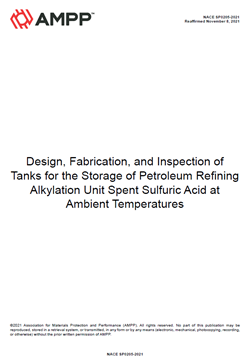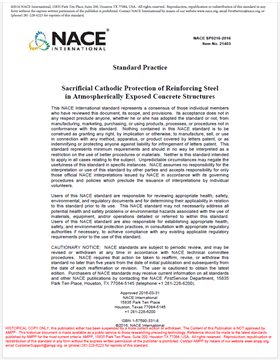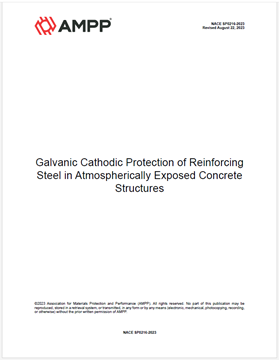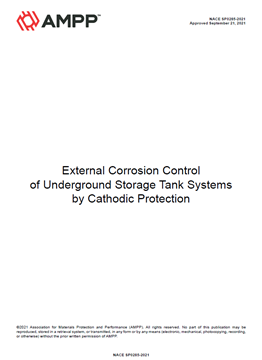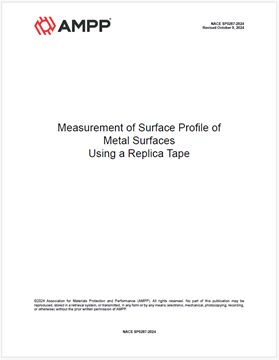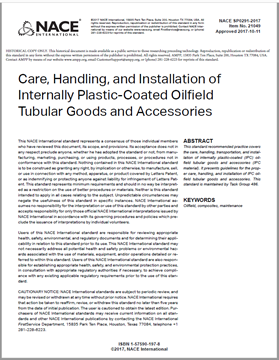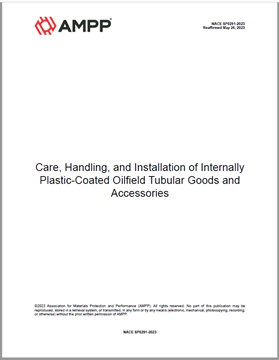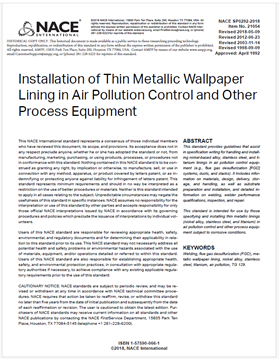NACE Standards
NACE SP0205-2015 (formerly RP0205) Design, Fabrication, and Inspection of Tanks for the Storage of Petroleum Refining Alkylation Unit Spent Sulfuric Acid at Ambient Temperatures
NACE SP0205-2021, Design, Fabrication, and Inspection of Tanks for the Storage of Petroleum Refining Alkylation Unit Spent Sulfuric Acid at Ambient Temperatures
Sulfuric acid (H2SO4) is the largest volume commodity chemical in use today.It plays some part in the production ofnearly all manufactured goods. One large use of concentrated sulfuric acid is used as a catalyst for refinery alkylationunits.Intheseunits,C3-C5olefinssuchaspropyleneorbutylenearereactedwithisobutanetoformgasoline-blendingcomponents such as isoheptane and isooctane.These gasoline-blending components are used to boost octane forautomobileandaviationfuels.
Most refineries have an alkylation unit that uses either hydrofluoric acid (HF) or sulfuric acid as the alkylation catalyst.Thisstandarddealswithspentsulfuricacidassociatedwiththesulfuricacidalkylationprocessonly.
NACE SP0206-2006, Internal Corrosion Direct Assessment Methodology for Pipelines Carrying Normally Dry Natural Gas (DG-ICDA)
NACE SP0215-2015/IEEE Std 1839-SG, NACE International and IEEE Joint Standard Practice for Below-Grade Corrosion Control of Transmission, Distribution, and Substation Structures by Coating Repair Systems
NACE SP0216-2016, “Sacrificial Cathodic Protection of Reinforcing Steel in Atmospherically Exposed Concrete Structures.”
NACE SP0216-2023, Galvanic Cathodic Protection of Reinforcing Steel in Atmospherically Exposed Concrete Structures
NACE SP0285-2021, External Corrosion Control of Underground Storage Tank Systems by Cathodic Protection
NACE SP0287-2024, Measurement of Surface Profile of Metal Surfaces Using a Replica Tape
NACE SP0288-2011-SG (anteriormente RP0288), "Inspección de la Aplicación de Recubrimiento Interior en Equipos de Concreto (Hormigón) y Acero"
NACE SP0291-2017, Care, Handling, and Installation of Internally Plastic-Coated Oilfield Tubular Goods and Accessories
NACE SP0291-2023, Care, Handling, and Installation of Internally Plastic-Coated Oilfield Tubular Goods and Accessories
This standard practice covers the care, handling, transportation, and installation of internally plastic-coated (IPC) oilfield tubular goods and accessories (IPC material). Some internal plastic coatings are inherently brittle or may be incom- patible with various chemicals used in oil and gas production operations and therefore are susceptible to damage from poor handling procedures, well operations, and chemical attack. Coating damage (e.g., cracks, chips, and disbond- ment) reduces coating effectiveness and results in premature coating failure.



